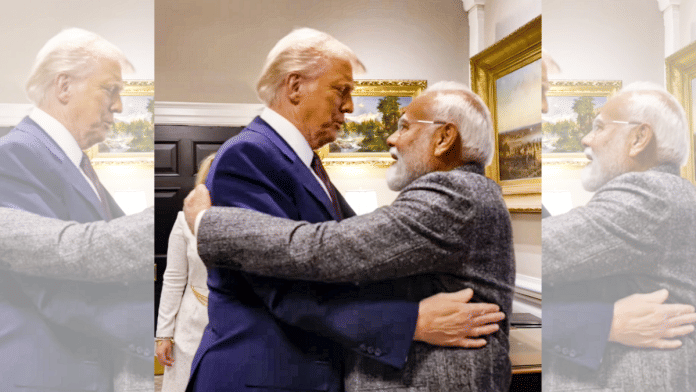Thank you dear subscribers, we are overwhelmed with your response.
Your Turn is a unique section from ThePrint featuring points of view from its subscribers. If you are a subscriber, have a point of view, please send it to us. If not, do subscribe here: https://theprint.in/subscribe/
On the surface, it looks like punishment for not aligning with Washington’s geopolitical choices, this is when the U.S. announced an additional 25% tariff on Indian goods, the official reasoning was that India continues to import Russian crude oil. On the surface, But scratch the surface, and the contradictions appear too glaring to ignore, it looks like punishment for not aligning with Washington’s geopolitical choices.
India is far from the largest buyer of Russian oil. China has been purchasing in much higher volumes, yet somehow, Beijing escapes such tariffs. This isn’t about oil alone — it’s about politics, leverage, and where Washington chooses to flex its muscle.
But any war doesn’t end because a leader bluntly declares they did, they end because of diplomacy, pressure, and complex compromises. Donald Trump, meanwhile, has been quick to claim credit for stopping wars and even brokering ceasefires. His words feel more like political marketing than historical truth.
There’s another layer too: business interests. Reports of the Trump family’s dealings in Pakistan, and the suggestion of ties with figures like Munir, make the selective approach toward India even more suspect. It’s a reminder that in geopolitics, private business and public posturing often sit side by side.
For India, the irony is sharp. A nation that needs affordable energy for its people and its growth is being penalized, while others walk free for the same choices. It isn’t just unfair — it chips away at the idea of an equal global order.
What does all this mean for ordinary people? It means higher costs, shaky trade relationships, and the sense that rules are bent depending on who sits at the table. Tariffs are never just about economics — they’re tools of power, wielded selectively. And when leaders turn global crises into political theater, it’s citizens everywhere who pay the real price.
These pieces are being published as they have been received – they have not been edited/fact-checked by ThePrint.


